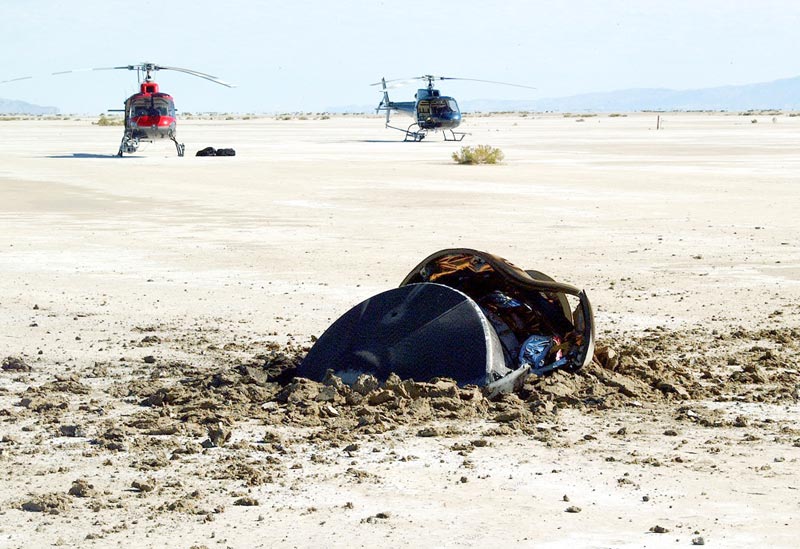
Last week wasn’t a great week for the scientists on the Genesis mission. The spacecraft, which has performed quite well throughout the program, has been collecting samples of the solar wind and storing them on delicate chips for study by scientists here on Earth. The collecting capsule returned on Wednesday, but due to a parachute malfunction, it crashed to Earth instead of wafting gently down and being picked up by a stunt pilot flying a specially equipped helicopter.
It was pretty dismaying to watch the little canister come hurtling down and smack into the Utah desert. When I saw the first closeups of it buried in the dirt, I figured “Well, so much for the science.” The capsule was cracked open, you could see its innards through a couple of good-sized holes, and it was obvious that the inside had been contaminated with dirt. But, I also knew that the scientists could more than likely recover some science. How much they would get was (and still remains) an open question.
As it turns out, while many of the wafers containing the captured particles of the solar wind are broken, but as researchers pick through the pieces, they are finding that there’s more for them to work with than the landing might have suggested.
I think that’s pretty cool. Despite the smash-up end to the mission, it appears that the scientists got a lucky break. They did plan the capsule to be pretty robust—that is, strong enough to not break into complete smithereens if a crash occurred. They CAN subtract data about the contamination out of the data they gather from the chips. In all likelihood, it will be enough to help them understand the role of oxygen in the formation of our solar system, and how nitrogen played a part in the formation of atmospheres like Earth’s. So, as my grandfather used to say,”them’s the breaks” but in this case, at least it wasn’t broken so badly that scientists were left with nothing to study.
